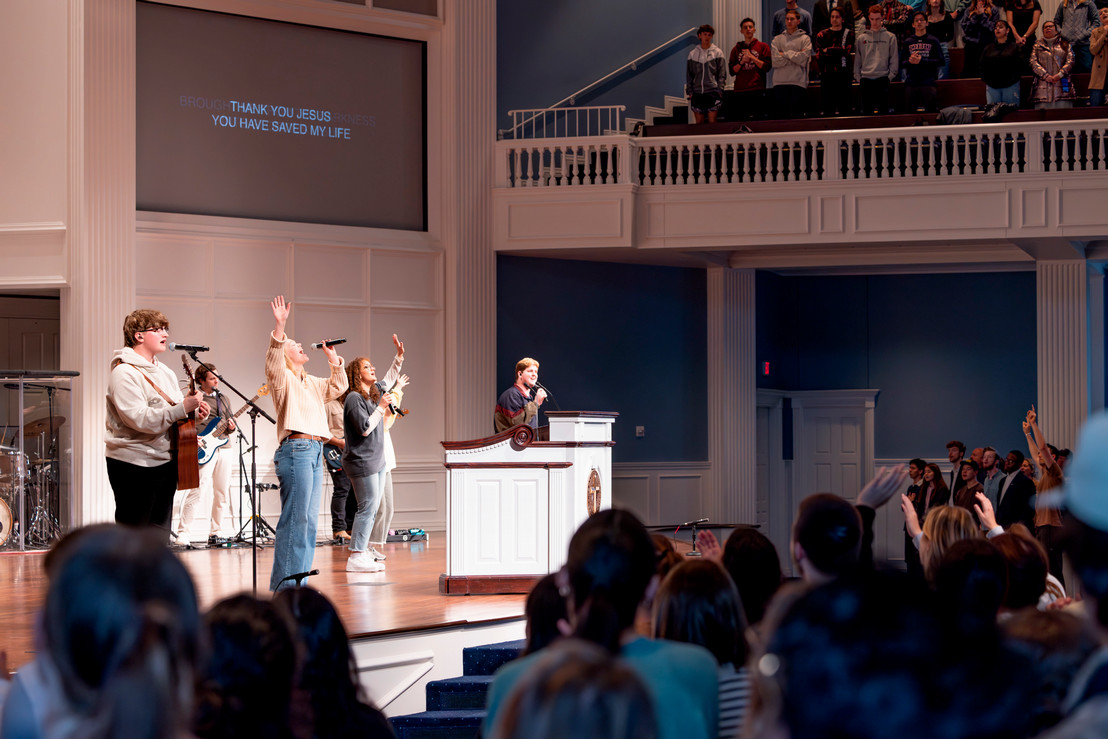A Guide to Understanding and Applying for Financial Aid

"And my God will supply every need of yours according to His riches in glory in Christ Jesus." – Philippians 4:19 ESV
Paying for college is one of the most significant investments you can make in your future. Thankfully, there are many types of financial aid for college students to help cover educational expenses.
The college financial aid process in Dallas, Texas, involves filing for a Free Application for Federal Student Aid (FAFSA) and state aid through various state programs to be evaluated for federal and state aid to maximize help in paying for college.
Financial aid tips for Texas college students include applying for grants and scholarships, as they are types of gift aid you don't have to repay. Following a financial aid checklist or student loan checklist can streamline the process and help ensure you pursue every resource to help fund your education.
Understanding Types of Financial Aid
The costs of attending a college or university in Texas vary by school but include tuition, fees, housing, meals, books, transportation, and miscellaneous personal expenses.
Never assume you aren't eligible for financial assistance for college. Receiving any kind of financial aid helps fund your education.
Here's a breakdown of the types of financial aid to explore.
Grants and Scholarships
Grants and scholarships are types of financial aid that recipients don't have to repay. A learning institution can offer its own grants. However, most grants, such as the Federal Pell Grant, are awarded by federal and state governments.
This need-based grant is exclusively for undergraduate students pursuing their first bachelor's degree. To get a Pell Grant, you must complete the FAFSA
Scholarships can be need-based or merit-based. DBU offers a variety of scholarships with varying eligibility criteria. Private entities like nonprofit organizations, banks, and trusts provide private scholarships.
DBU's Office of Scholarships helps students find external funding resources.
Loans, Self-Help Aid, and Work-Study
Students can apply for educational loans to cover college costs for tuition, room, meals, and other expenses if they cannot receive financial support from alternative sources. These loans are a type of self-help aid. Students must repay all educational loans. So, it's best to borrow only what money you need to cover educational expenses.
There are federal, state, and private loan options available to help with educational expenses. You must complete the FAFSA to determine eligibility for federal subsidized and unsubsidized loans.
Other types of self-help aid include 529 investment plans and employment/self-pay options.
Students can also work part-time on campus or in the local community while taking classes in a federal or state work-study program to pay for part of their expenses. Work-study programs are usually need-based, and students cannot receive an FWS award that exceeds their financial need, according to U.S. Department of Education guidelines.
FAFSA Updates
Answering complex FAFSA questions seems daunting for many financial aid seekers.
The good news is that FAFSA form updates for the 2024-25 academic year "expands eligibility for federal student aid, including Pell Grants, and provides a streamlined user experience."
Due to updates to student aid calculations,"an estimated 7.3 million students from low-income backgrounds will be eligible to receive Federal Pell Grants."
Furthermore, some applicants can skip up to 26 questions, and some can answer as few as 18 questions, which reduces the time it takes to fill out the form.
Federal Student Loan Forgiveness
The U.S. Department of Education's Office of Federal Student Aid (FSA) "is improving how borrowers manage and repay their federal student loans."
In the new loan servicing environment, the Unified Servicing and Data Solution (USDS), approximately 38 million federal student loan borrowers will have an improved, more streamlined web experience.
Beginning May 1, 2024, the Public Service Loan Forgiveness (PSLF) and Teacher Education Assistance for College and Higher Education (TEACH) grant programs will be managed through StudentAid.gov instead of a specific loan servicer.
This change makes it easier for borrowers to apply for these programs and check the status of their requests.
Financial Aid/Student Loan Checklist
Follow this financial aid/student loan checklist to streamline the process of applying for and receiving financial aid.
- Complete the FAFSA to determine eligibility for a federal grant and student loan.
- Use 003560 for the DBU school code.
- Use 2022 tax information for the 2024-2025 application for Federal Student Aid.
- Complete the Texas Residency Determination Form to be considered for Texas aid.
- Complete the Texas Application for State Financial Aid for non-citizen Texas residents.
- If the DBU Office of Financial Aid requests it, complete verification forms.
- Secure your Federal Direct Student Loans.
- Complete mandatory entrance counseling, then sign your Master Promissory Note.
- Apply for multiple DBU Scholarships.
- Seek out and apply for private scholarships — you should also check in the Scholarship Opportunities tile in the myDBU portal.
- Email scholarships@dbu.edu to receive information on private scholarships.
- Check community resources (civic organizations, foundations, parent's employer).
- DBU students with a remaining balance may consider the following options:
- Request a payment plan.
- Apply for a credit-based PLUS Loan for Parents.
- Apply for a credit-based private loan.
Pursuing a Christ-focused Education May Cost Less Than You Think
Christian students pursuing a Christ-focused education will experience faith integrated with every aspect of learning at DBU. The Financial Aid team at Dallas Baptist University works with each student to make paying for an education manageable for families!
While it may seem that private institutions are more expensive than public institutions, this is not always the case. Sometimes, public colleges and universities charge extra fees above tuition costs. In addition, the federal financial aid formula considers the cost of education.
Contact DBU's Office of Financial Aid to discuss aid options that suit your individual circumstances. DBU staff members want to help you discover ways to pay for college so you can fulfill your calling.



